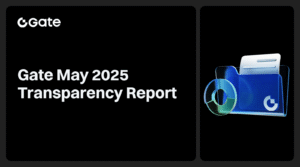Swiss Bank Banque Pictet Admits Conspiring with U.S. Taxpayers to Hide $5.6 Billion in Assets
Sign outside Banque Pictet & Cie SA in Switzerland. Image source: Luke MacGregor | Bloomberg | Getty Images
A major Swiss bank, Banque Pictet, admitted to conspiring with U.S. taxpayers and others to hide over $5.6 billion from the Internal Revenue Service, as announced by the Department of Justice. This revelation came as part of a settlement agreement in which the bank agreed to pay about $122.9 million in restitution and penalties.
Accounts and Funds
The bank had 1,637 accounts for American clients between 2008 and 2014, with the clients collectively evading approximately $50.6 million in U.S. taxes. The accounts themselves held over $5.6 billion of the roughly $20 billion in total assets from U.S. taxpayers managed by the bank during that period.
Agreement Terms and Cooperation
As part of the deal, the Department of Justice has agreed to defer prosecution for three years and then dismiss a charge of criminal conspiracy to defraud the IRS if the bank complies with the terms of the agreement. Additionally, the bank agreed to cooperate with ongoing investigations into hidden bank accounts.
Justice Department’s Response
U.S. Attorney for the Southern District of New York, Damian Williams, stated that rooting out financial malfeasance remains a priority for their office. He also encouraged companies and financial institutions to report any wrongdoing before being approached by the authorities.
Pictet Group’s Response
In light of the settlement, the Pictet Group stated that the agreement follows their extensive cooperation with U.S. authorities in full compliance with Swiss law. The group also expressed its commitment to ensuring its clients meet their tax obligations in the future.
Means of Concealment
Prosecutors charged the Pictet Group with helping clients evade U.S. taxes by opening, maintaining, and concealing undeclared accounts. The group used a variety of means to achieve this, including holding clients’ account-related mail at the bank, forming and handling offshore entities, and transferring funds from undeclared accounts to accounts that appeared to be held by non-U.S. clients.
Conclusion
The settlement with Banque Pictet marks a significant development in the crackdown on offshore tax evasion. With the bank agreeing to pay substantial restitution and penalties, as well as to cooperate with ongoing investigations, it sends a strong message to financial institutions worldwide about the consequences of involvement in such practices.






